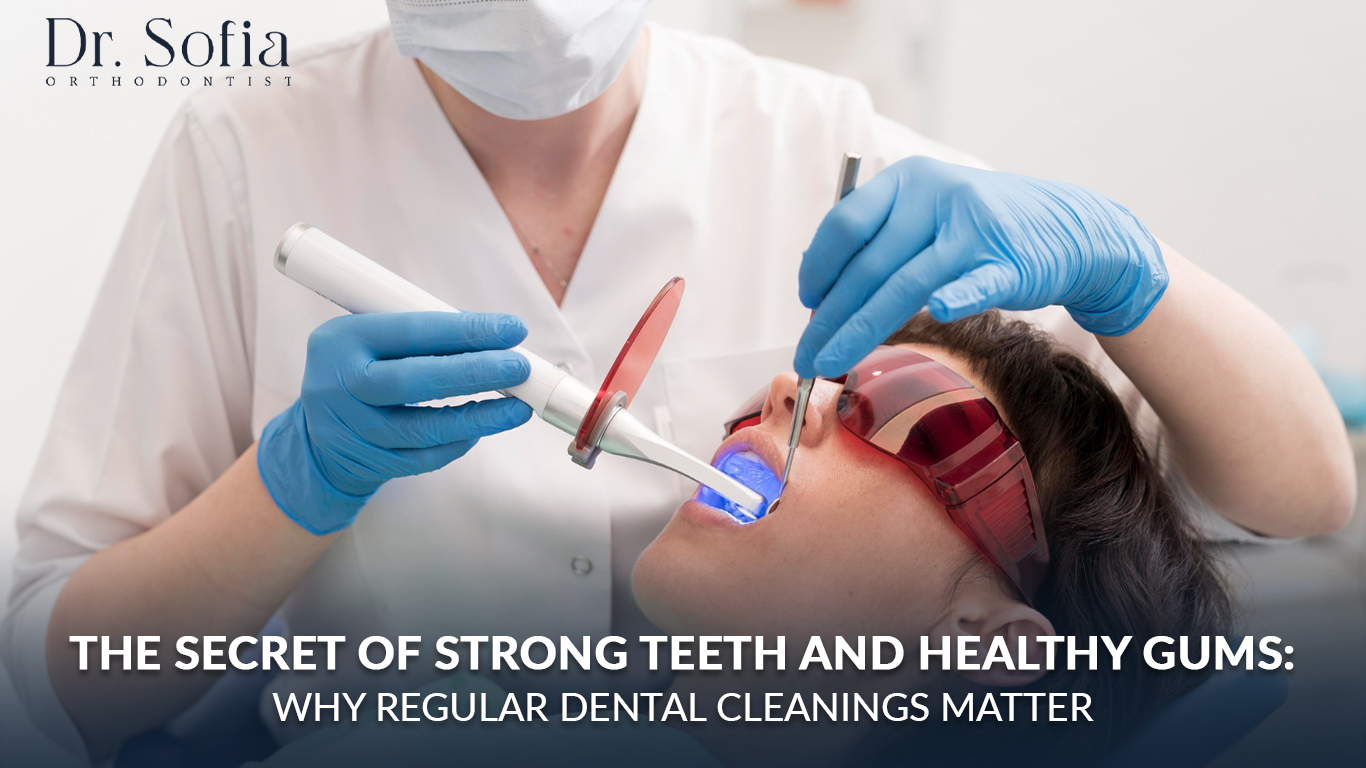


To maintain a bright smile is not only about brushing twice a day or just flossing before going to bed. These regular habits are necessary for good oral hygiene, but they are not enough on their own. Few of the areas inside the mouth of a person are unreachable while using a normal toothbrush or with floss. Thus, regular dental cleanings become necessary. Regular dental cleanings are not only necessary for cosmetic purposes but also very essential for long-term maintenance of oral hygiene.
In this blog, we will explore why dental cleanings are essential and how plaque affects oral health. A regular goer to the dentist or a very new to go to one, this blog will help you know the importance of regular dental cleanings.
Most people focus on daily habits such as brushing and flossing during oral hygiene. These are no doubt important, but they still cannot reach all the corners where the harmful bacteria live. That is where regular dental cleanings come in:
By paying heed to the regular dental cleanings, you are investing in both oral hygiene and systemic health, as well as long before any problems from arising.
Brushing and flossing regularly can slow the process of plaque buildup, but they cannot eliminate the hardened tartar or bacteria that are hidden under the gumline.
Regular dental cleanings remove these harmful buildups that prevent the cascade of events that damage the teeth and gums.
Regular cleanings are a lot more than just a minty shine to your teeth: They’re an essential part of preventing and treating oral diseases.
Following regular dental cleanings, you receive best-practice measures that help to keep your teeth healthy and prevent your gums from becoming saggy and sickly.
It is easy to underestimate the value of checkups when the teeth feel fine. However, the are compelling reasons to see your dentist regularly:

When you commit to the regular dental cleanings and check-ups, it gives a proactive approach to oral health, catching all the minor issues before they become major concerns.
For early detection and treatment, the best option would be to visit Dr. Sofia Hawelia, the best dentist in Kolkata.
If you’ve never had a professional cleaning, here’s an overview of the step-by-step process and what to expect:
Most cleanings last 30 to 60 minutes, depending on your oral health needs. You may feel some mild sensitivity afterwards — especially if we removed a lot of tartar — but any discomfort usually resolves in a day or so.
Good teeth and gums don’t happen by accident; they take a solid and steady partnership between you and your dental care team. Routine Dental Cleanings eliminate harmful plaque & tartar, catch dental problems early & help you with personalised tips for how you can keep your mouth as healthy as possible. By seeing your dentist as recommended (usually twice a year), you’re taking a preventive measure against cavities, gum disease and even systemic health issues.
Visit Dr. Sofia Hawelia to get recommendations and preventive treatments. She is the best dentist in Kolkata to take care of your routine dental cleanings.
It is recommended to get a regular dental cleaning every six months. But, the frequency may depend on your oral health, age and also the risk of cavities. People might need cleanings every 3-4 months as well to maintain oral health.
yes, Brushing and flossing daily at home is essential, but they cannot remove the tartar or reach under the gumline. Regular dental cleanings help remove what daily care misses, catch early signs of dental issues and ensure that teeth and gums remain healthy in the long term.
